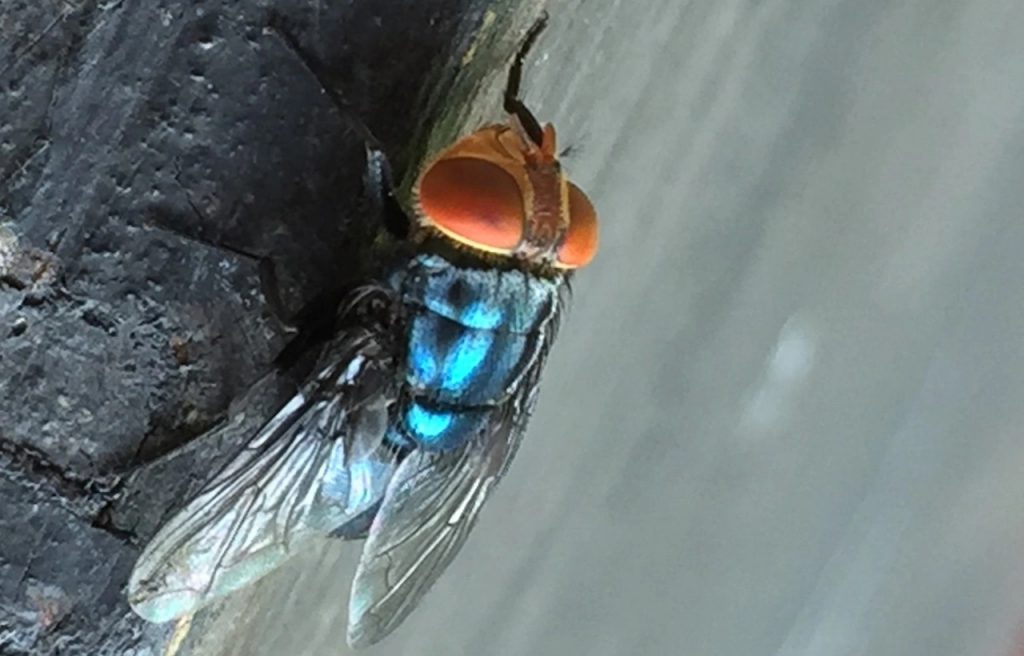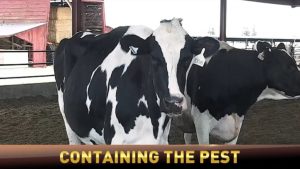
USDA investing $21 million to renovate a fruit fly production facility in Metapa that will produce 60-100 million sterile NWS flies per week.
Agriculture Secretary Brooke Rollins provided an update on the U.S. Department of Agriculture’s ongoing partnership with Mexico to combat New World screwworm (NWS). USDA suspended imports of live cattle, bison and horses from Mexico as of May 11 due to the continued northward spread of the invasive fly in Mexico.
Rollins held a call with Mexico Minister of Agriculture & Rural Development Julio Berdegué on May 27 to discuss the ongoing threat of NWS and actions both countries are taking to contain the pest south of the U.S. border, according to a news release.
USDA said it is working daily with Mexico to make sure the resources, tactics and tools are in place to effectively eradicate NWS. Additionally, USDA’s Animal & Plant Health Inspection Service (APHIS) and its Mexican counterparts continue to hold ongoing technical calls and meetings on NWS. Current restrictions on live animal imports from Mexico remain in place, and as it previously stated, USDA will continue to evaluate the current suspension every 30 days.
Rollins additionally shared that USDA is investing $21 million to renovate an existing fruit fly production facility in Metapa, Mexico, to further the long-term goal of eradicating this insect.
When operational, this facility will produce 60-100 million additional sterile NWS flies weekly to push the fly population farther south in Mexico. Given the geographic spread of NWS, USDA said this additional production capacity will be critical to the agency’s response.
“Our partnership with Mexico is crucial in making this effort a success,” said Rollins. “We are continuing to work closely with Mexico to push NWS away from the United States and out of Mexico. The investment I am announcing today is one of many efforts my team is making around the clock to protect our animals, our farm economy and the security of our nation’s food supply.”
For decades, USDA and its partners have used sterile insect technique (SIT), alongside other strategies such as surveillance and import controls, to eradicate and keep NWS at bay, the agency said. Currently, U.S.-supported sterile insect rearing and dispersal operations in Mexico and Central America have been operating at full production capacity, with up to 44 flights a week releasing 100 million sterile flies.
All flies used today are raised in the Panama-U.S. Commission for the Eradication & Prevention of Screwworm (COPEG) facility in Panama. COPEG is a joint program between APHIS International Services and the Panama Ministry of Agriculture that uses SIT to accomplish control and eradication goals and prevent NWS from infesting the U.S. through mass-rearing and sterilization of millions of flies at this biosecure facility. NWS is currently present in all Central American countries and southern Mexico.
The new investment in the Metapa facility in Mexico would allow USDA to double the use of SIT, the agency pointed out.
APHIS and its counterparts in Mexico are making strong progress toward enhancing surveillance in Mexico, addressing administrative or regulatory roadblocks that could impair an effective response and ensuring appropriate animal movement controls are in place to prevent further NWS spread, the agency said. A Mexican delegation joined APHIS in Washington, D.C., last week for a high-level meeting to discuss these efforts.
In a statement, Berdegué said he and Rollins agreed on the next steps to lift the suspension of livestock exports, noting that Rollins expressed satisfaction with the measures implemented by Mexico but requested more time to conclude her analysis.
Berdegué extended an invitation to have a USDA expert mission visit the country as soon as possible to evaluate the effectiveness of the NWS campaign in the territory. USDA said a technical team from APHIS will visit Mexico in the coming weeks to assess the on-the-ground situation and continue working toward key goals around surveillance and animal movement.
Berdegué added that Rollins informed him of the approval of U.S. assistance to build a new plant for the production of sterile flies in Chiapas. Likewise, a regionalization strategy will be initiated to keep the northern part of the country free of NWS through the reinforcement of measures to control the movement, inspection, surveillance and treatment of livestock.
Mexico would like to reach a comprehensive agreement on the strategy and protocols to contain and eradicate NWS and said this agreement must provide certainty that Mexican cattle exports to the U.S. will not be interrupted as long as it remains in compliance with the agreed-upon measures and protocols. The government noted that such an agreement would provide certainty for producers as well as U.S. importers of Mexican cattle.
Berdegué said an agreement was endorsed by both parties during the Washington meeting. He pointed out to Rollins that the number of new weekly screwworm cases peaked in mid-April and has since decreased 51.8%, demonstrating the effectiveness of the ongoing measures.
The government of Mexico is confident that, based on the results on the ground and the technical agreements reached, livestock exports will resume in the near future, he said.
You can now read the most important #news on #eDairyNews #Whatsapp channels!!!
🇺🇸 eDairy News INGLÊS: https://whatsapp.com/channel/0029VaKsjzGDTkJyIN6hcP1K
























